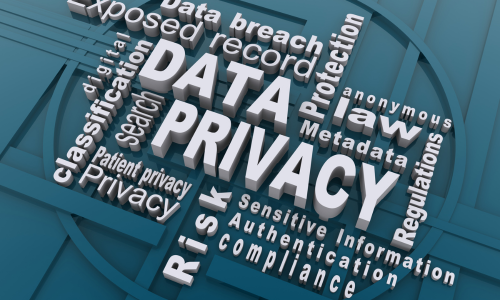In today’s digital age, the collection and use of consumer data have become fundamental to innovation, business strategies, and the development of new technologies. However, this has raised concerns about data privacy and ethics, as consumers are more aware than ever of how their personal information is being used. As businesses continue to push boundaries in data-driven innovation, striking a balance between progress and consumer protection is essential. Here’s a closer look at the critical issues surrounding data privacy and the ethical considerations involved.
1. The Growing Importance of Consumer Data
Data is often called the “new oil,” fueling everything from personalized advertisements to artificial intelligence (AI) algorithms. Companies rely heavily on data to enhance user experiences, improve services, and develop products. With innovations like machine learning and predictive analytics, businesses can offer tailored services and make more informed decisions. However, as the amount of consumer data collected increases, so do the risks and responsibilities associated with handling that data.
2. Consumer Privacy Concerns
While data-driven innovations can benefit consumers, they also raise significant privacy concerns. Many consumers are unsure of what data is being collected, how it’s being used, and who has access to it. With high-profile data breaches, identity theft, and surveillance becoming more common, consumers are increasingly wary of how their personal information is handled.
Transparency and consent are critical to addressing these concerns. Consumers should have a clear understanding of what data is being collected, how it will be used, and the right to control or opt out of data collection when possible. Striking the right balance between innovation and privacy is key to maintaining consumer trust.
3. Ethical Considerations in Data Use
Beyond privacy concerns, businesses must also consider the ethical implications of using consumer data. Some practices, such as using data for manipulative marketing or exploiting vulnerable populations, raise ethical questions. For example, when a company collects data on individuals’ health, financial status, or personal habits, how can it ensure that the data is used responsibly?
Ethical data use involves not only protecting privacy but also using data in ways that benefit consumers and society. Companies should avoid practices that exploit or harm individuals, ensure transparency in data usage, and respect consumers’ autonomy in deciding how their information is shared. Establishing clear ethical guidelines for data usage helps businesses create a positive relationship with consumers.
4. Regulations and Legal Frameworks
Governments around the world have recognized the need for stronger data protection regulations. The European Union’s General Data Protection Regulation (GDPR) is one of the most comprehensive frameworks, granting consumers greater control over their data, including the right to access, rectify, and delete their personal information. Similarly, the California Consumer Privacy Act (CCPA) offers privacy rights to California residents, such as the right to know what personal data is being collected and the right to opt out of data sales.
These regulations serve as a roadmap for businesses, ensuring that they uphold consumer rights while continuing to innovate. However, with new technological developments like AI and big data, policymakers will need to continue adapting regulations to keep pace with evolving practices and emerging risks.
5. Balancing Innovation with Protection
The key challenge is finding a way to balance innovation with consumer protection. Businesses must continue to develop new technologies and services while respecting consumer privacy and ethical considerations. One potential solution is data anonymization, where personal data is processed in ways that prevent identification, allowing for data-driven innovations without compromising individual privacy.
Another approach is fostering a culture of accountability and ethical responsibility within organizations. By establishing ethical standards for data use and incorporating privacy protections into the design of products and services, companies can build trust with consumers while driving innovation.
Final Thoughts
As technology continues to evolve, data privacy and ethics will remain a critical concern for businesses, consumers, and regulators. Balancing the drive for innovation with the need to protect consumer rights and ensure ethical practices is crucial for sustaining long-term trust. By adhering to privacy laws, fostering transparency, and using data responsibly, companies can continue to innovate while safeguarding the interests of their customers. The future of data-driven innovation depends on finding this delicate balance.

